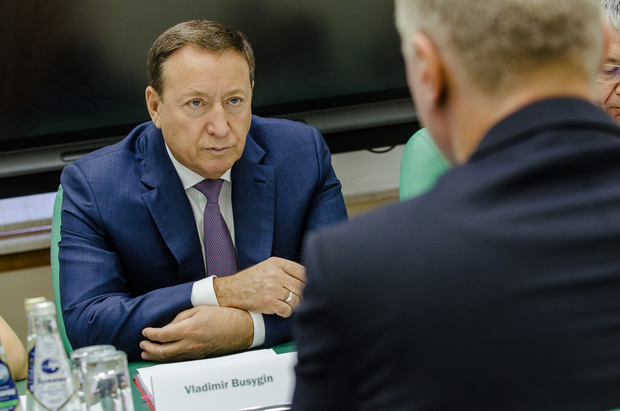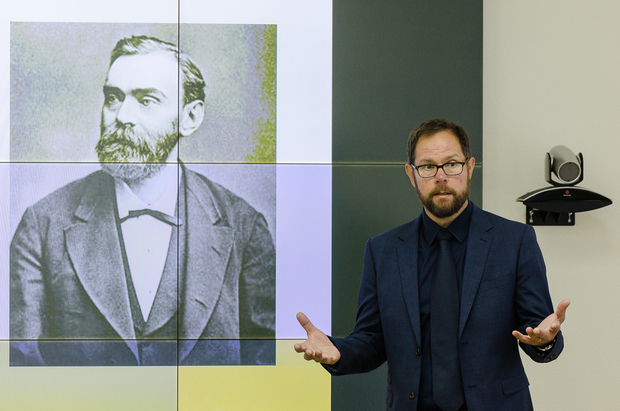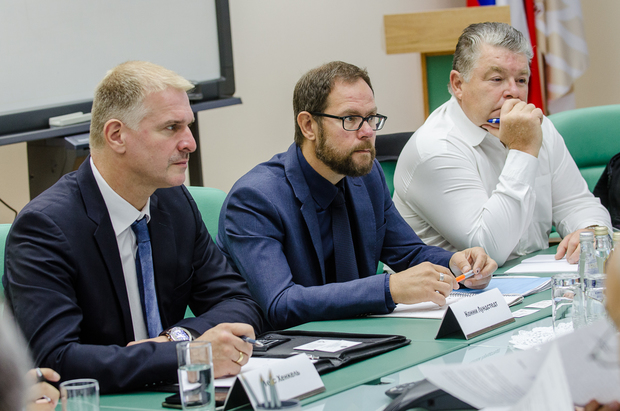German EPC Group is ready to build with NKNK a new production plant for Russia
The process of production of isocyanate, one of the main components of polyurethane, was presented by EPC Group to Nizhnekamskneftekhim (NKNK), belonging to the multisectoral holding TAIF. The engineering group of companies flew to Kazan together with the licensor of the technology, the Swedish company Chematur. The correspondent of Realnoe Vremya found out the details of the negotiations.
To fully provide the domestic consumption of isocyanates
Why can the proposal of the delegation of EPC Group and Chematur to launch in Tatarstan the production of isocyanates be attractive? First, in Russia the component for polyurethane is only imported one, and, in the case of plant start-up, it is possible to provide domestic consumption with a completely domestic product. Second, after starting the promising ethylene complex at Nizhnekamskneftekhim there will be the necessary raw material for isocyanates' production. Now, the choice of a contractor for the ethylene complex is taking place, the tender will be finished at the end of September.
'The complex will give a lot of intermediate products, which need to be converted into the final products of the petrochemical industry. Thus, for 600 thousand tonnes of ethylene of the first phase there will be about 270 thousand tonnes of benzene. Of course, we are interested in their processing,' clarified the chairperson of the Board of Directors of Nizhnekamskneftekhim, Deputy Director General of TAIF for management and strategic development of the group NKNK Vladimir Busygin. Director General of EPS Jens Henkel noted in reply: 'I am especially glad to hear about the increase in the production of benzene, which is now lacking in the market. You will have raw materials and we will only start a business,' said Mr. Henkel and gave the floor to the representatives of the company Chematur, the licensor of the technology.

'Since the beginning of 1986, the company began to study the technology of isocyanates and therefore we have accumulated 30-year experience. We offer licensed technology and develop the base project,' said the marketing director of Chematur Conny Lundstedt. He also noted that despite the fact that in 2014 the company changed owners — Chematur became entirely owned by the Chinese The Connell Group — it continues to be Swedish, the way for which was paved by Alfred Nobel. In 1930, there was established a separate department in the Bofors concern for the solution of problems of chemical export business. At this times, Chematur made its first export project.

What is the demand of the market?
According to the representatives of Chematur, the current demand of the Russian market in isocyanates is 400 thousand tonnes per year. The most widely used in the industry are two kinds of isocyanates: toluene diisocyanate (TDI) and methylene diphenyl diisocyanate (MDI). TDI is used for the production of flexible polyurethane foams, and in the future — of foam, different seats, mattresses, paints, coatings, sealants, adhesives. MDI is necessary for the production of rigid polyurethanes. It has high insulating properties, what determine its main use: building insulation, refrigeration equipment, pipe insulation.
Nizhnekamskneftekhim has a joint venture with BASF Polyurethanes for the production and supply to the Russian market of polyurethane systems — Elastokam, established in 2000.

How to ensure the production safety
At the meeting it became clear that the production of isocyanates is impossible without phosgene, which is extremely dangerous substance. 'Production safety is ensured by the reliability of plants,' said director for development of Chematur Lars Stenmark. However, only assurances are not enough. 'In the production of phosgene there are always a lot of questions and it is necessary to get acquainted with the scheme of work of the plants,' said Vladimir Busygin. Besides, the department for management and strategic development of the group of Nizhnekamskneftekhim of TAIF JSC will conduct marketing analysis until 2025, it will study expenses, emissions and effluents, their correspondence to the standards in Russia and the balance of consumption of raw materials, one component of which, by the way, is nitric acid of high concentration. The question — who can be a provider of high-concentrated acids, what is more — in large volume, — also remains open. Perhaps, there will be more clarity in many of these points in the autumn. The potential partners decided to meet a second time in mid-September.